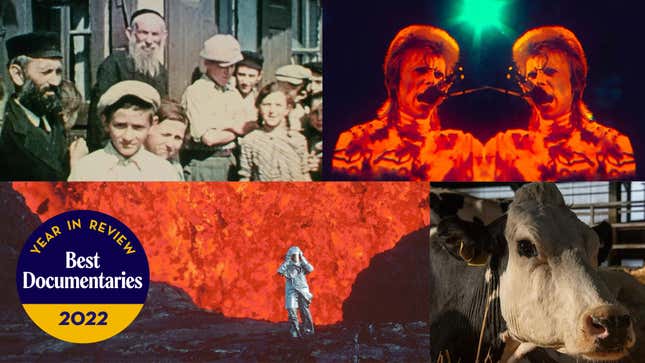
While the merits of streaming and its impact on the theatrical exhibition marketplace can be debated, there’s no doubt that the advent of digital streaming has contributed to a boom in nonfiction filmmaking. Viewers who would never have seriously considered getting in their car, seeking out a theater, and plunking down $10 or $15 to watch a documentary have indulged curiosity in the genre at a massive scale. A lot of this interest, of course, comes in the form of unambitious pop-culture rehashes and true crime rib-pokers—some uninspired or unnecessary (do we really need to hear what Casey Anthony has to say?), some actually elevated or compellingly rendered. But if those types of low-hanging nonfiction fruit are largely driving the market, there is still fascinating work being done. To wit, let’s look at 14 of the best documentaries of 2022, ranked from least to most essential. For The A.V. Club’s overall best films list, click here!)